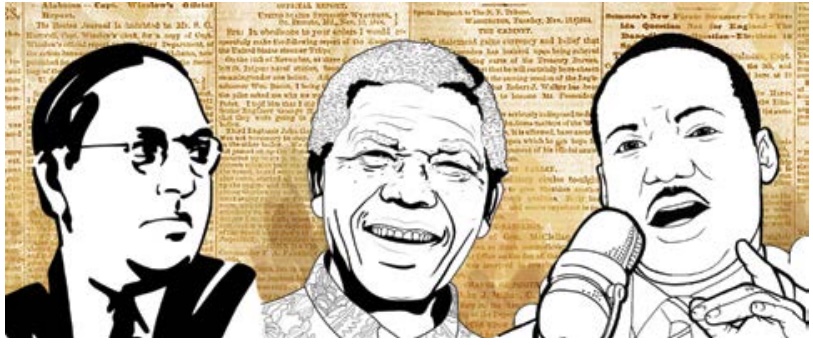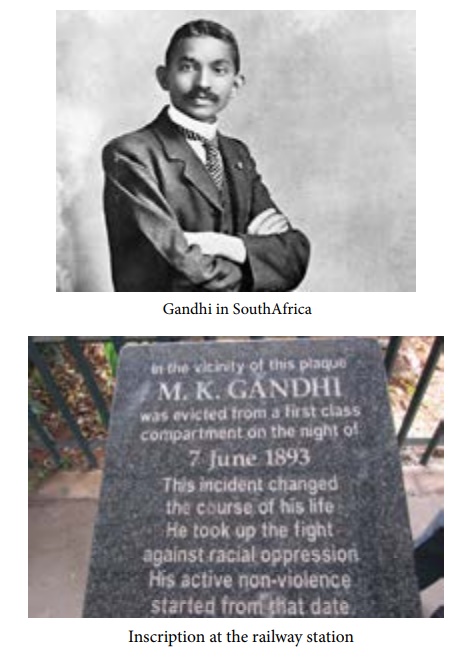Chapter: 9th Social Science : Civics: Human Rights
Human Rights
HUMAN RIGHTS
The lesson travels
through the history of organisations for human rights. The rights ensured by
the Universal Declaration of Human Rights being highlighted. Fundamental rights
are enshrined in the Indian Constitution and fundamental duties incorporated in
the Constitution along with the introduction to National and State Human Rights
Commissions and their functions are explained. Extended rights like child
rights, SC and ST rights, women rights, labour rights, etc., are also
discussed.

In June 1893, while a
person was on his way to Pretoria, a white man objected the person’s presence
in a first class carriage and the person was ordered to move to a van
compartment at the end of the train. The man who had the first-class ticket
refused to leave and was thrown off the train at Pietermaritzburg. Shivering in
the winter night in the waiting room of the station changed the course of his
life. He took up the fight against racial oppression. The spirit for active
non-violence started from that moment.
Can you guess the
person? He is none other than Mahatma Gandhi. Gandhi made the momentous
decision to stay on in South Africa and fight racial discrimination against the
Indians there. Out of that struggle emerged his unique way of protest
nonviolent Satyagraha.
What do you think about
this incident?

Do you think Gandhi had
the right to travel in first class?
As a human being, Gandhi
had all the rights to travel in the first class compartment. But he was
discriminated because of his skin colour. Discrimination is not only done based
on colour, it is done on the basis of race, gender, place of birth, caste,
religion and so on.
Due to these
discriminations, people are prohibited from enjoying their basic human rights.
Related Topics